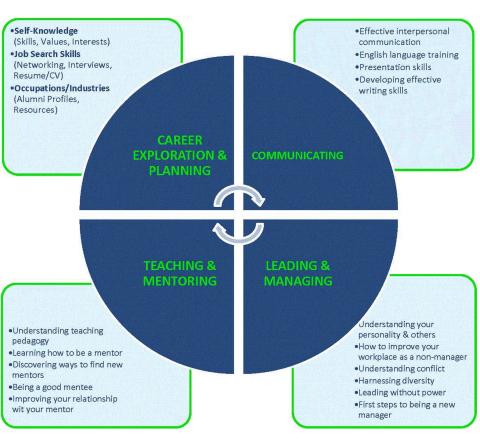Name: Anna Burkart Sadusky, PhD
Job Title & Company: Staff Scientist, Omeros Corporation
Location: Seattle, WA
How long you’ve been in your current job: Over two years
Postdoc Advisor, IC: Jurrien Dean, MD; NIDDK, Development Biology Lab
Name: Anna Burkart Sadusky, PhD
Job Title & Company: Staff Scientist, Omeros Corporation
Location: Seattle, WA
How long you’ve been in your current job: Over two years
Postdoc Advisor, IC: Jurrien Dean, MD; NIDDK, Development Biology Lab


In real estate parlance, it is said that the three most important factors in maximizing the value of your property are location, location and location. Networking carries a similar importance, especially for those preparing for a career beyond NIH, or your current institution. Many good jobs are filled by candidates who have been identified prior to that job being officially posted. Therefore, the more broadly your net of contacts can be cast, the better your chances of receiving advanced information on positions which are of interest to you.
Name: Benjamin Porter, PhD
Job Title & Company: Communications Manager, Office of Communications; The University of Texas at Dallas
Location: Dallas, Texas
How long you’ve been in your current job: 3 months
Postdoc Advisor, IC and subject: Alan Koretsky, NINDS, Behavioral fMRI
Do you need to find a job in a geographically limited area far from your current location? Maybe your significant other just found a dream job, or maybe you just always wanted to live in Seattle, WA – whatever the reason, a remote and geographically limited job search poses a distinct set of challenges that require some strategizing to overcome. Here are a few thoughts that may help from a person who recently was searching for a job in Dallas, TX, while living in Bethesda, MD. These tips are useful in any job search, but particularly for conducting a remote search.
You found an awesome job posting or graduate program, crafted the perfect curriculum vitae, and created a cover letter capable of convincing the staunchest of holdouts that you are a vital addition to their team. The only problem is you remembered to attach your resume after pressing send on your cover letter e-mail. Forgotten attachments happen to everyone, but the job application process is where you are supposed to distinguish yourself as a better candidate than everyone else. So – now what?
Post written by a guest blogger Yewon Cheon, former postdoc in the National Institute of Aging and current Program Coordinator in OITE.
“I love interviewing people!”
If you have been following our Calendar for Career Success in 2012, then July is the month where you should be making some decisions. You have done some exploring of career options, gathered information on different jobs and interviewed a variety of people to gain a better understanding of what a particular
It’s June! That means we are half way through the year and half way through our career development calendar that we posted in January. If you have been following the calendar, you have met with your PI to discuss you career aspirations, talked with a career counselor, created a networking map, learned
As we continue to post success stories from NIH alumni in our “NIH Alumni: Where are they now?” series, readers of this blog have seen and will continue to see the term, “informational interview.” While aptly named, many readers may be asking: What is an informational interview? How do I set one up? What type of questions should I ask? What, besides information, should I expect to get out of an informational interview?